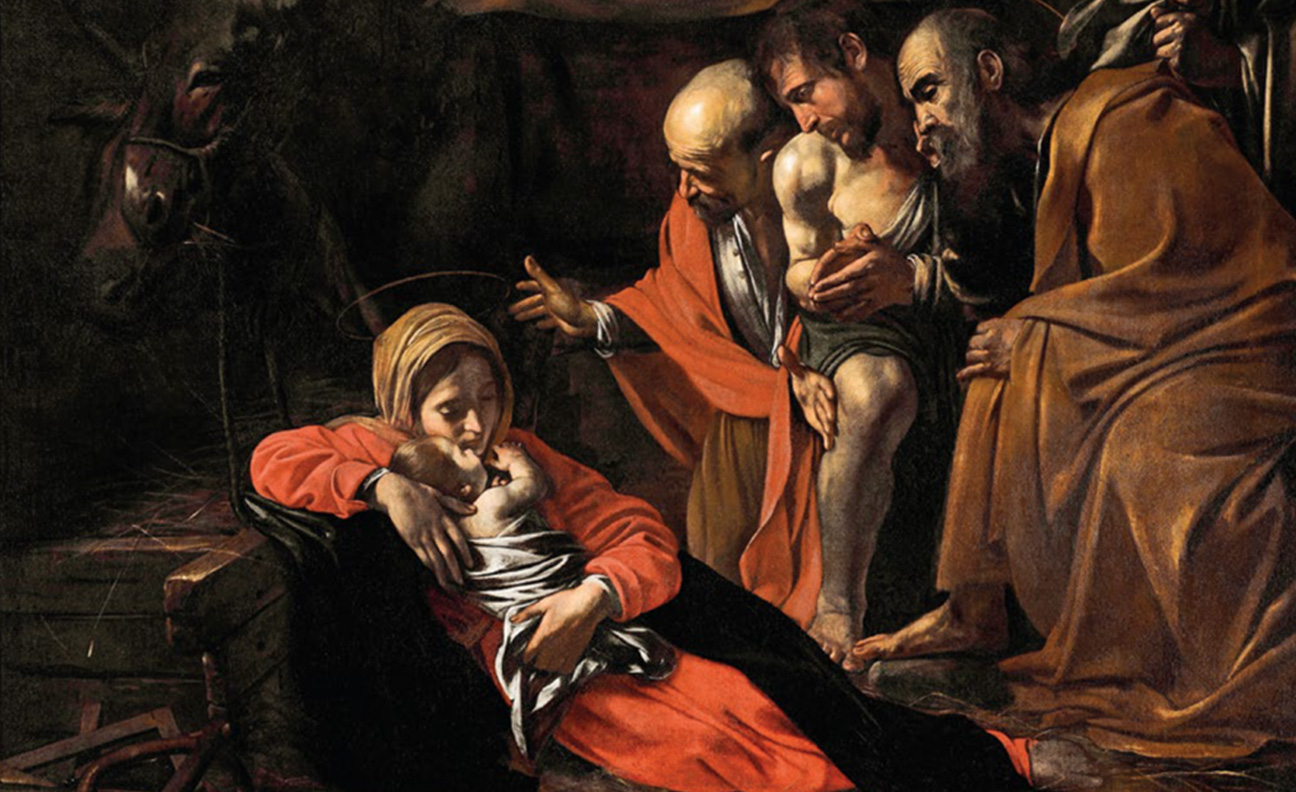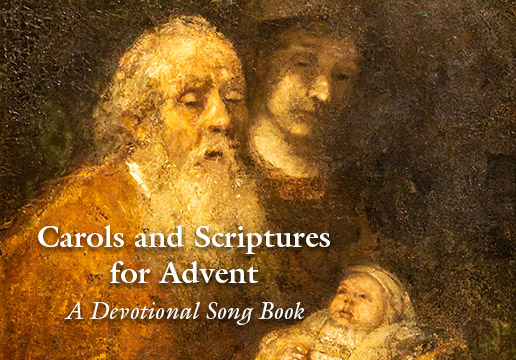
DECEMBER 24
View the Full Advent Calendar
While Shepherds Watched Their Flocks by Night
Artwork:
Adoration of the Shepherds, Michelangelo Merisi, commonly known as Caravaggio (1609), is an oil on canvas painting. Housed in the Interdisciplinary Regional Museum of Messina, Sicily, Italy. Caravaggio depicts the focal point of the scene with Mary holding her baby peacefully in the center. All three shepherds, as well as Joseph identified by a faint halo, look on with amazement and complete adoration at this infant child born in a barn.
Carol Text: Nahum Tate, 1700.
Carol Melody: George Frederick Handel
Piano accompaniment by Lezlie Taguding
![]()
While shepherds watched their flocks by night
All seated on the ground
The angel of the Lord came down
And glory shone around
And glory shone around
![]()
Fear not said he for mighty dread
Had seized their troubled mind
Glad tidings of great joy I bring
To you and all mankind
To you and all mankind
![]()
To you in David’s town this day
Is born of David’s line
The Savior who is Christ the Lord
And this shall be the sign
And this shall be the sign
![]()
The heavenly Babe you there shall find
To human view displayed
All meanly wrapped in swathing bands
And in a manger laid
And in a manger laid
“And there were shepherds living out in the fields nearby, keeping watch over their flocks at night. An angel of the Lord appeared to them, and the glory of the Lord shone around them, and they were terrified. But the angel said to them, “Do not be afraid. I bring you good news that will cause great joy for all the people. Today in the town of David a Savior has been born to you; he is the Messiah, the Lord. ""
- Luke 2:8-11
Advent Devotional
Shepherding is the first profession mentioned in the Bible – “Abel was a keeper of sheep…” (Genesis 4:2). It was dangerous work that required finding grass and water for the flock, restoring those that strayed, and protecting the flock from predators. Shepherds’ reward for their difficult work was to be viewed as society’s outsiders. Considered ceremonially unclean, they were not allowed into the Temple courts to worship. Their character was so suspect that their testimony was inadmissible in court. Yet this carol reminds us Christ has a way of inverting the world’s social order so that sometimes the world’s outsiders are selected as God’s insiders.
Shepherds, who were not allowed to give evidence in court, were one of the first to receive the history altering news that, “Today in the town of David a Savior has been born to you; he is the Messiah, the Lord.” A few verses later St. Luke tells us that the shepherds took this information and, “they spread the word concerning what had been told them about this child, and all who heard it were amazed at what the shepherds said to them.” Those who could not be trusted to give accurate testimony in court were now providing testimony that amazed listeners.
Both the words and music of this carol have regal lineage. The melody was adapted from master composer George Frederick Handel. The words were composed by Nahum Tate, who was appointed Poet Laureate of England during the reign of William and Mary. The words from his carol still provide amazing testimony that born on this day is, “The Savior who is Christ the Lord.”
Prayer
Thank You God
that You reach out to
outsiders and outcasts
and make them heralds of
Your mercy and grace.

Joseph A. Kohm
Vice President for Development, CSLI & CSLI City Director, Virginia BeachJoseph A. Kohm, C.S. Lewis Institute Vice President for Development and City Director for Virginia Beach. Joe is an attorney and formerly worked as a Certified Major League Baseball Player Agent. He earned his Master’s in Management Science from the State University of New York at Oswego and both his J.D. and M.Div. from Regent University. Joe is the author of The Unknown Garden of Another’s Heart: The Surprising Friendship between C.S. Lewis and Arthur Greeves (Wipf and Stock, 2022.)




